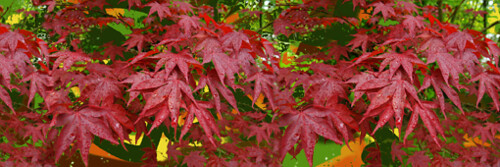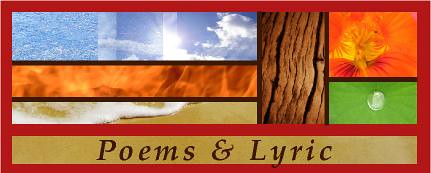
Kaum ein Gedicht gibt für mich die Stimmung des Septembermonats (in diesen Breiten) so gut wieder wie das Gedicht „To Autumn“ von John Keats. Leider habe ich keine deutsche Übersetzung des Gedichts gefunden.
John Keats entwickelte sich in seinem kurzen Leben – er wurde im Oktober 1795 in London geboren und starb bereits 1820 in Rom an Tuberkulose – zu einem der bedeutendsten Dichter der englischen Romantik. Dieses Gedicht ist sehr romantisch, gleichzeitig sehr durchdacht. Naturbeobachtungen geben den Rahmen, nämlich Beginn und Ende, wobei am Anfang Pflanzen stehen und Keats sehr schön wiedergibt, was wir gerade jetzt erleben: das zweite, trügerische Aufblühen nach der Hitze des Sommers. Das Gedicht schließt mit dem Blick auf die Tierwelt, die uns eindeutig zeigt, dass der Herbst da ist: die Schwalben sammeln sich zum Abflug, die Lämmer sind schon fast Schafe geworden … Der Mittelteil ist die plötzliche und unvermittelte Ansprache an den Herbst selbst. Ist es der Herbst? Ist es ein geliebter Mensch, den wir in der Ferne sehen?
Sehr schön finde ich auch, wie selbstbewusst-sommerlich der erste Vers beginnt, und die beiden folgenden Verse mit Fragen auf Veränderung, Verunsicherung hinweisen.
„Hier ruht jemand, dessen Name in Wasser geschrieben wurde“ steht auf dem Grabstein von Keats. Mit diesem und anderen Gedichten hat er seinen Namen verewigt.
To Autumn
Season of mists and mellow fruitfulness,
Close bosom-friend of the maturing sun;
Conspiring with him how to load an bless
With fruit the vines that round the thatch-eves run;
To bend with apples the moos´d cottage-trees,
And fill all fruit with ripeness to the core;
To swell the gourd and plump the hazel shells
With a sweet kernel; to set budding more,
And still more later flowers for the bees,
Until they think warm days will never cease,
For summer has o´erbrimmed their clammy cells.
II
Who hath not seen thee oft amid thy store?
Sometimes whoever seeks abroad may find
Thee sitting careless on a granary floor,
Thy hair soft-lifted by the winnowing wind;
Or on a half-reap´d furrow sound asleep,
Drows´d with the fume of poppies, while thy hook
Spares the next swath and all its twined flowers;
And somtimes like a gleaner thou dost keep
Steady thy laden head across a brook;
Or by a cyder-press, with patient look,
Thou watchest the last oozings hours by hours.
III
Where are the songs of spring? Ay, where are they?
Think not of them, thou hast thy music, too,-
While barred clouds bloom the soft- dying day,
And touch the stubble-plains with rosy hue;
Then in a wailful choir the small gnats mourn
Among the river swallows, borne aloft
Or sinking as the light wind lives or dies;
And full-grown lambs loud bleat from hilly bourn;
Hedge-crickets sind; and now with treble soft
The red-breast whistles from a garden-croft:
And gathering swallows twitter in the skies.
von John Keats


0 Comments:
Post a Comment
<< Home